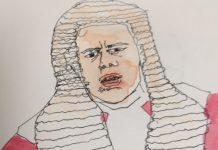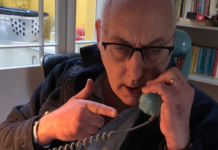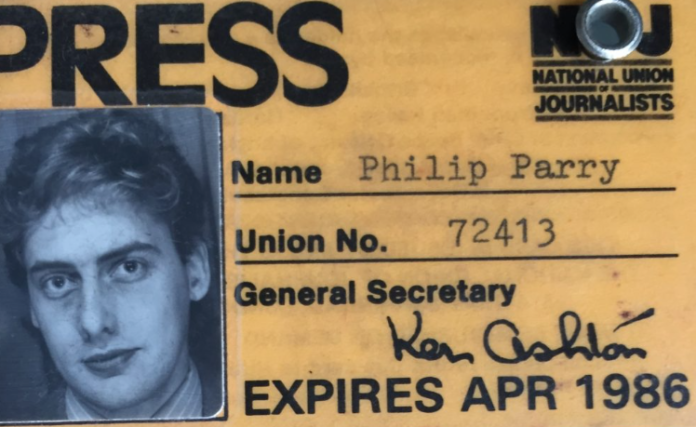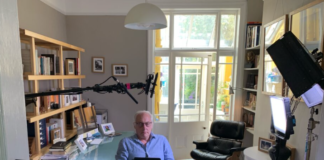- Disabling protests again - 2nd July 2025
- Democratic deficit - 2nd July 2025
- Crime pays - 1st July 2025

During 23 years with the BBC, and 40 years in journalism (when he was trained to use simple language, avoiding jargon), political stories as well as looking at key events differently, have always been central for our Editor, Welshman Phil Parry, and here he examines the recent extraordinary by-election result in Scotland, along with the incredible reversals of fortune that have happened politically in the past.
Previously Phil has described how he was helped to break into the South Wales Echo office car when he was a cub reporter, recalled his early career as a journalist, the importance of experience in the job, and made clear that the ‘calls’ to emergency services as well as court cases are central to any media operation.
 He has also explored how poorly paid most journalism is when trainee reporters had to live in squalid flats, the vital role of expenses, and about one of his most important stories on the now-scrapped 53 year-old BBC Cymru Wales (BBC CW) TV Current Affairs series, Week In Week Out (WIWO), which won an award even after it was axed, long after his career really took off.
He has also explored how poorly paid most journalism is when trainee reporters had to live in squalid flats, the vital role of expenses, and about one of his most important stories on the now-scrapped 53 year-old BBC Cymru Wales (BBC CW) TV Current Affairs series, Week In Week Out (WIWO), which won an award even after it was axed, long after his career really took off.
Phil has explained too how crucial it is actually to speak to people, the virtue of speed as well as accuracy, why knowledge of ‘history’ is vital, how certain material was removed from TV Current Affairs programmes when secret cameras had to be used, and some of those he has interviewed.
Earlier he disclosed why investigative journalism is needed now more than ever although others have different opinions, and how information from trusted sources is crucial.

For a journalist, these things make great stories.
The reversal of fortune for major political forces you once thought dominant, is a case in point.
Let’s look first at what has happened with the Scottish National Party (SNP), because it is extraordinary, and could hold lessons for its fellow nationalist party in Wales, Plaid Cymru (Plaid).
The beneficiaries of the chaos inside the SNP (and the post-mortem that must now be underway, after they lost the Rutherglen and Hamilton West by-election) are the party’s fierce rivals, Labour, which once held sway north of the border.
In 2010 they had 41 of Scotland’s current 59 seats in Westminster. After the independence referendum in 2014, Labour haemorrhaged support, and in 2019 they were all but wiped out, managing to hold just one seat.

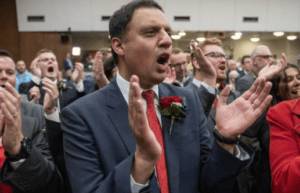
They now hope for a revival (and the by-election victory may be the start of it), which could help them win a General Election (GE) that must be held no later than January 2025.
At the by-election, nearly 59 per cent of voters plumped for Labour’s Michael Shanks, a secondary-school teacher, while Katy Loudon, the SNP’s candidate, received only 27.6 per cent of the vote.
The SNP have been particularly hindered by unbelievable recent events (and the party’s by-election defeat is only one of them – an MP has just quit to join the Tories [see story soon]), so Plaid should take note, but almost certainly won’t!
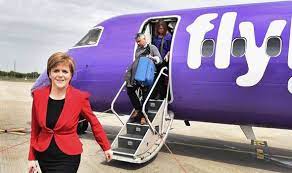
Journalistic research has revealed how public money was used by the SNP, to upgrade travel arrangements for then leader Nicola Sturgeon, pay for a party member’s theory driving test, fund yoga classes, and buy multiple copies of books, including a collection of her speeches. The spree that has been disclosed included almost £10,000 on VIP airport upgrades, and more than £32,000 on team-building exercises. Apart from the yoga classes, driving test and books, other purchases by senior staff included nail polish, and £4,182 for hospitality, as well as accommodation at the five-star Gleneagles Hotel in Perthshire. In all £14.2 million of taxpayers’ cash was spent by Scottish civil servants in three years. Taxpayer money was also spent on wellington boots “for inspections”, as well as China crockery for a meeting room.

Even her signature policy of using the next General Election (GE) as a de facto referendum on independence now lies in tatters.
The party used its annual conference in Aberdeen to state that, should it win a majority of Scottish seats at the GE, it should begin negotiations with Westminster on how it can go about securing Scotland’s independence.
Some MPs supported the approach previously championed by Ms Sturgeon – in which securing 50 per cent plus one of the vote in Scotland should be treated as the Scottish people declaring themselves independent.
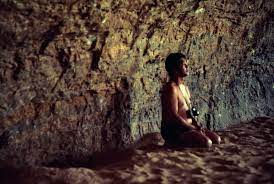
This was described by one SNP MP as seeking the mandate to secure independence, rather than a vote for independence itself.
There may be trouble over this, but the leadership seem determined.
Humza Yousaf, the SNP’s current leader and the first minister of Scotland, said it was the “wrong approach”.
Ms Sturgeon can, though, still cause hearts to flutter among SNP supporters.

She made a surprise visit to the conference, (when she was accused of being “the Liz Truss of the SNP”), and arrived to cheers and applause from some in the hall. One woman even wept after seeing her, and received a hug from Ms Sturgeon.
Yet despite this level of support from party members, it is obvious that all is not well within the SNP, or in the country.
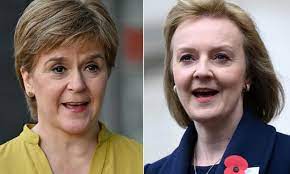
The ferry system in Scotland appears to have been appallingly badly managed, and given that around 90 inhabited islands rely on ferries, this reflects poorly on the SNP’s record in government.
As The Economist has put it: “The SNP’s nationalism has at times eclipsed its competence…polls suggest a mauling for the SNP at the next British general election. The ferry saga has not helped the case for independence-indeed, it makes it likely that voters will toss the SNP overboard”.
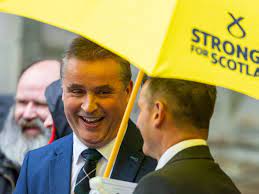
This has all come as the SNP was forced to expel one of THEIR OWN MPs! Angus MacNeil was suspended from its Westminster group last month. The Na h-Eileanan an Iar (Western Isles) MP was kicked out after reportedly clashing with party chief whip Brendan O’Hara. He allegedly breached their ‘code of conduct’. Mr MacNeil said he would stand as an independent candidate at the next General Election.
The backdrop is incredible, because all of this is hard on the heels of an extraordinary police investigation, following allegations of fraud, and an astonishing leadership election campaign, in which a leading contender said that in line with her religious beliefs she opposed gay marriage.

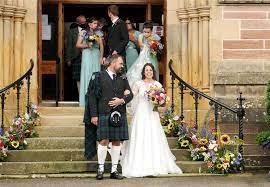
Worrying details about the leadership election would have been enough to sink most parties, and as Sky News described it: “The contest has been bitter and fractious with the candidates, two of whom are serving cabinet ministers, trashing and attacking their own government’s record”.
Bizarre as it may seem, these events remind me of what happened to Ron Davies – who was also a major force in UK politics, but brought down, too, by scandal – much of which was alleged and hasn’t been proven.
It cannot be overstated just how important Ron was.
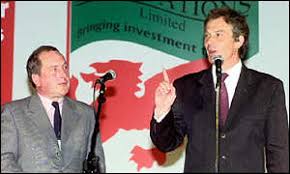
He spearheaded the Welsh pro-devolution campaign in 1997 (a vote which I covered in a draughty leisure centre), and the referendum was won with the narrowest of margins – 50.3 per cent to 49.7 per cent.
As a journalist I watched what happened next avidly, and our paths crossed many times in the years that followed, including being rung at home by Ron.
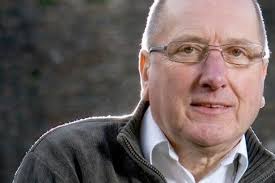
One of our meetings was a briefing by him in his London office when he was Welsh Secretary, after I had interviewed him on another matter, during my years presenting the now-defunct BBC Wales TV current affairs programme, Week In, Week Out.
On other occasions he was a regular panelist with a weekly debate programme I hosted on BBC Radio Wales (RW) called The People’s Assembly. He was a fine contributor and always answered the questions well.
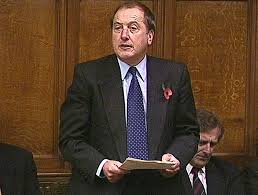
First Ron was the ‘architect of devolution’ in Wales, but then in the media, he was the ‘architect of his own destruction’. In October 1998 journalists were summoned to Downing Street and told that Ron had resigned as Welsh Secretary after admitting to the Prime Minister “a serious lapse of judgment” on Clapham Common the previous evening, but denied any sexual element. He was the first of Tony Blair’s ministers to resign.
Ron claimed he had been robbed by a Rastafarian man, whom he had just met but was about to dine with, in the presence of others. His car, telephone, wallet and House of Commons (HoC) pass were stolen, and six people were arrested. Ron went on television to apologise for his “moment of madness”, while on his hand was scrawled the word “sorry”.
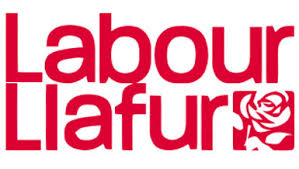
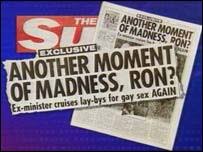
But it continued, and for a young reporter from South Wales it was extraordinary to see (as with the turmoil inside the SNP) – like watching a car crash in slow motion.
The Sun reported that Ron had engaged in a sex act in daylight with a stranger at Tog Hill in 2003. This was a picnic area eight miles North of Bath in Somerset, and it was only 17 days after his third wife had given birth to their first child.
The newspaper had received a tip-off and sent a photographer. The published pictures showed Ron leaving the bushes, but they claimed unpublished pictures captured the act.

He told the Sun: “These allegations are completely false and without substance.” Ron said to other journalists: “I have actually been there when I have been watching badgers”.
But he declared to the HoC, cryptically: “We are what we are. We are all different, the product of both our genes and our experiences.” In June 1999, Ron had disclosed that he was bisexual and said he was having psychiatric treatment to curb a “compulsive” quest for risk. In the 2008 local elections he was elected to Caerphilly Borough Council, as an independent councillor.
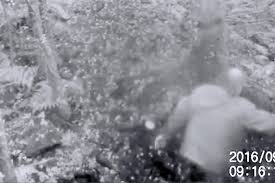
In fact, he has never been far from the news. In September 2016, footage emerged apparently showing him placing (or as he said, clearing) rocks and logs on Caerphilly Mountain, after a row over how mountain bikers were using the area.
So that was it. One of the most talented Welsh politicians of his generation was brought down by controversy and hubris.
For Ron, as for the SNP, it is, perhaps, a time to reflect, because it seems that most political dominances come to an end…

Details including political stories like these by Phil, as he was gripped by the rare neurological condition Hereditary Spastic Paraplegia (HSP), have been released in a major book ‘A GOOD STORY’. Order it now!
Regrettably publication of another book, however, was refused, because it was to have included names.
Tomorrow – Phil looks at how the sparks in politics now are few and far between, as the address to his conference by opposition Labour leader Sir Keir Starmer is accused of being a ‘snoozefest’!



